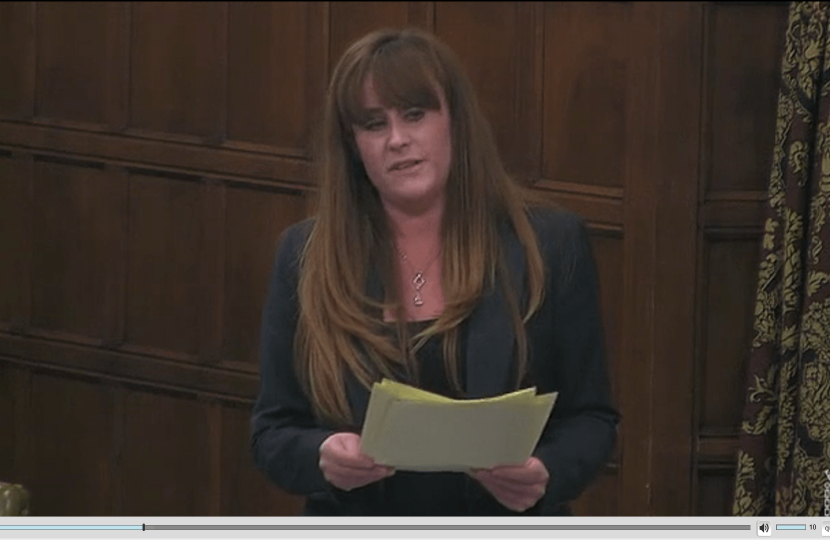
Last week I joined colleagues for a debate in Westminster Hall around deafness and hearing loss. I was very keen to speak in this debate because as well as affecting many people across Rochester and Strood, it has also had a major effect on my family.
It was a pleasure to share with Parliament the difficult story twenty-five years ago when my mum lost her hearing suddenly overnight, due to a virus at the age of 40. She had not been ill and had never had any hearing problems, but she went from being a hearing person one day to having no hearing the next day.
That was absolutely devastating for my mother and for us all and I know these are feelings and experiences shared up and down the country. The difficulty with not being able to communicate is incredibly hard, particularly when sign language or lip-reading is not known. This often leaves people flung into isolation and, sometimes, a state of depression.
Deafness is the invisible disability. While NHS staff can do everything they can to help, such as lip-reading classes and councillor support, there is little to overcome the mourning of something that will not come back. I saw and experienced at first hand the major barriers that people who are deaf have to face. I recognise that there are strong differences between individuals who have been born deaf, those who have gradual hearing loss, and those who had hearing loss as a small child, perhaps due to meningitis or some other illness, but the biggest thing for my mum was that she did not have any deaf friends.
However, what can be positively life changing after such an issue, is that an individual could be a candidate for a cochlear implant. Sadly at the time, funding for this was limited so my Mum had to wait 2 years for the implant but now it is much easier to access it sooner. This implant can to some extent bring someone back from isolation and depression but at the same time many people will not understand that a cochlear implant does not bring someone’s hearing back fully. They do not hear like they did when they were a hearing person, but it gives them some quality of life.
Technology has changed, and 25 years on, cochlear implants are available not just in London, but all over the country. What is very clear is that the sooner someone has a cochlear implant after the loss of hearing, the greater impact it will have on how that person hears. I was extremely worried on reading the reports that some clinical commissioning groups are now looking at stopping hearing aid provision.
In my view, hearing aids are a cheap way of having an impact on people who are suffering from gradual hearing loss and can be an important way of keeping people out of that isolation and of maintaining their contact with the health service so that the hearing loss can be monitored. I find it quite frightening that CCGs would even be considering stopping that support, and I think it is a dangerous road to go down.
For too long, deaf people have been disadvantaged and isolated. It was really good to have this debate and I fully support the cause of the UK Council on Deafness and its recommendations.
The full debate can be read here: http://hansard.parliament.uk/Commons/2017-11-30/debates/59353F2C-DA5B-4EA6-A8A9-640BC46C1D8A/DeafnessAndHearingLoss#contribution-603F3CB0-EC20-471F-85FB-5AA0D5A29DB8



